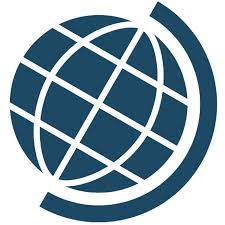By Hassan Zaggi
The Social Science Research Council (SSRC) has said that it will provide an initial USD 7.2 million in direct research funds to 12 teams working in 17 countries to address the growing global threat posed by low COVID-19 vaccination rates and public health mis- and disinformation.
This is to better understand how health mis- and disinformation spreads, how to combat it, and how to build stronger information systems, while increasing COVID-19 vaccination rates.
In a statement, the Council disclosed that through the Mercury Project—enabled by The Rockefeller Foundation, Robert Wood Johnson Foundation, Craig Newmark Philanthropies, and the Alfred P. Sloan Foundation with a total of USD 10.25 million so far—the SSRC is supporting a first cohort of social and behavioral scientists from around the world to generate much-needed new research on locally tailored solutions in Bolivia, Brazil, Côte D’Ivoire, Ghana, Haiti, India, Kenya, Malawi, Mexico, Nigeria, Rwanda, Senegal, Sierra Leone, South Africa, Tanzania, United States, and Zimbabwe.
Following the characterization of inaccurate health information by the U.S. Surgeon General as an “urgent threat,” and by the World Health Organization as an “infodemic,” the SSRC issued a call for proposals to counter the growing global threats posed by public health mis- and disinformation and low Covid-19 vaccination rates, and received nearly 200 submissions from around the world.
“With COVID-19 prevalent and rapidly evolving everywhere, there is a pressing need to identify interventions with the potential to increase vaccination take-up.
“Vaccines are only effective if they become vaccinations; vaccines are a scientific marvel but their potential is unfulfilled if they are left on the shelf.
The large volume of high-quality proposals submitted to the Mercury Project underscores just how eager the social and behavioral science community is to evaluate interventions to increase vaccination demand and build healthier information environments,” said Anna Harvey, President of SSRC.
The statement revealed that researchers in the Mercury Project’s first cohort are affiliated with research institutions and implementing partners around the world.
“This initial cohort’s ideas exemplify the creativity and vision behind the Mercury Project,” said Dr. Bruce Gellin, Chief of Global Public Health Strategy at The Rockefeller Foundation. “They go far beyond quick fixes, with the goal of identifying robust, cost-effective, and meaningful solutions that can be widely adopted and scaled. We hope that more, better, and science-based knowledge about what we need to do will lead to increased uptake of reliable information—and serve as a powerful counter to the effects of misinformation and disinformation on vaccine demand.”
Funded projects will provide evidence about what works–and doesn’t–in specific places and for specific groups to increase Covid-19 vaccination take-up, including what is feasible on the ground and has the potential to be cost-effective at scale. Each of the 12 teams will have access to findings from the other teams while exploring interventions including, but not limited to conducting literacy training for secondary school students in partnership with local authorities to help students identify Covid-19 vaccine misinformation; equipping trusted messengers with communication strategies to increase Covid-19 vaccination demand and using social networks to share tailored, community-developed messaging to increase Covid-19 vaccination demand.
“The viral, vaccine, and information environments are all rapidly evolving–but that doesn’t mean it is impossible to make progress towards more effective and equitable responses,” said Heather Lanthorn, Program Director at the Mercury Project. “By funding projects on the ground around the world, this work will help us understand what works where, and why, and identify new ways to harness the power of connection and communication to advance public health goals.”
The three-year Mercury Project, which launched in November 2021 with USD 7.5 million in seed funding from The Rockefeller Foundation and additional support from the Robert Wood Johnson Foundation, Craig Newmark Philanthropies, and the Alfred P. Sloan Foundation, applies the principles of large-scale, team-based science to the problem of vaccination demand.



